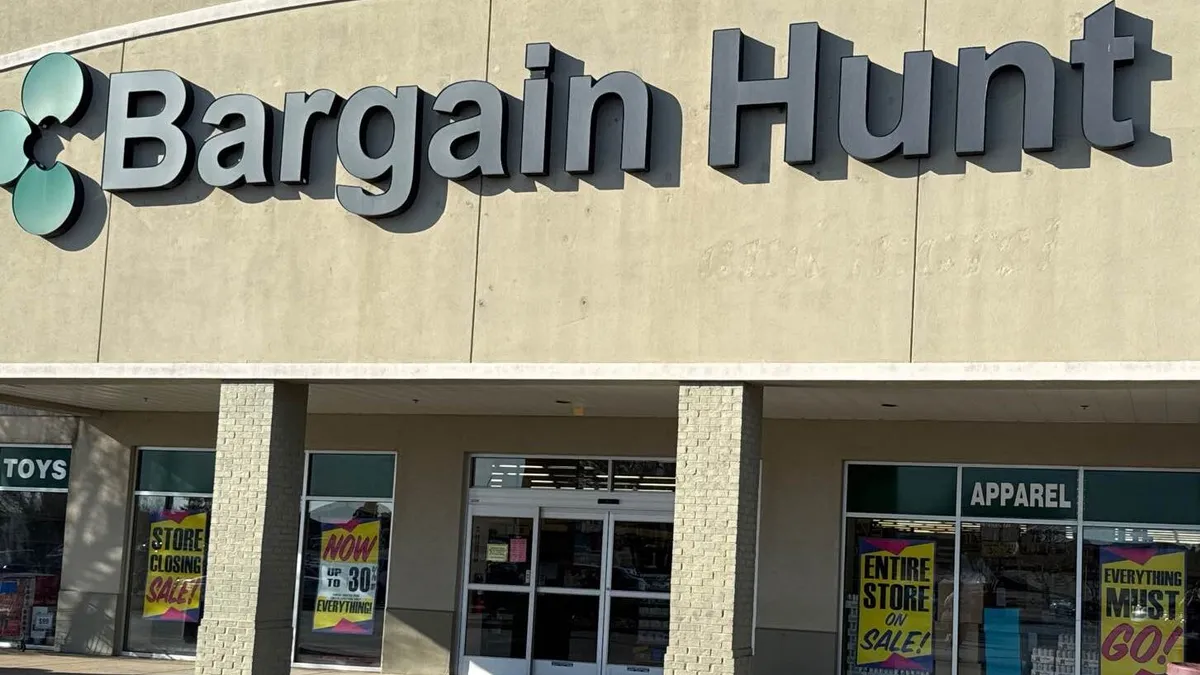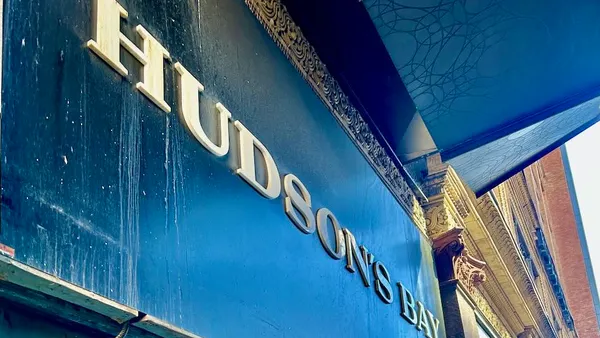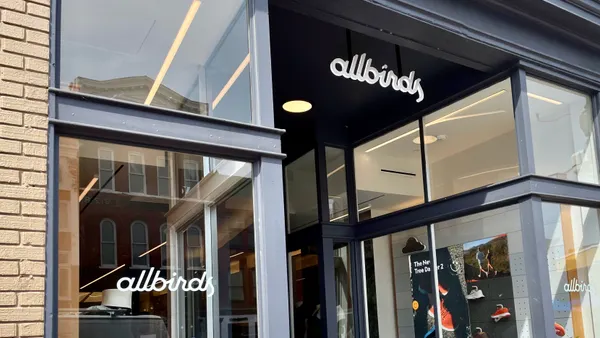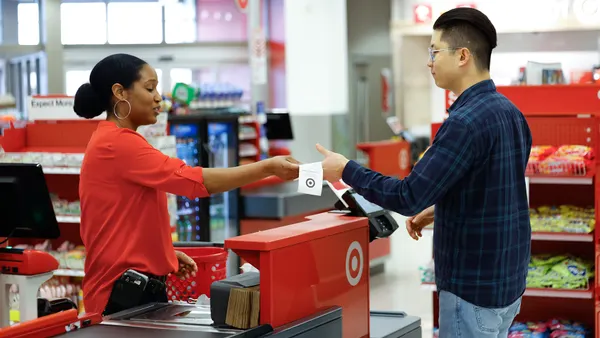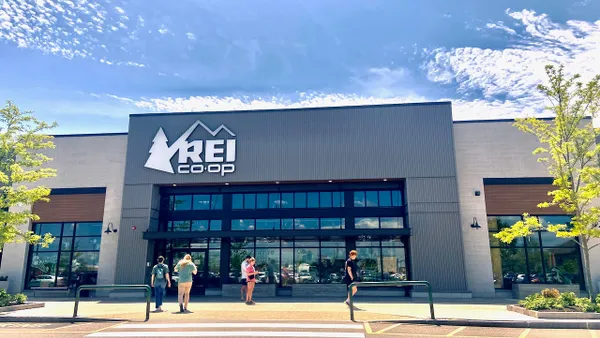Dive Brief:
- Bargain Hunt filed for Chapter 11 bankruptcy on Feb. 3. Parent company Essex Technology Group said the closeout-focused retailer faced competition from every segment of retail, including big-box and convenience stores, along with inflation and supply chain issues, which made staying in business untenable.
- Going-out-of-business sales have begun at all 92 of its stores across 10 Midwestern and Southeastern states. The retailer reported two consecutive years of net losses and is on its way to a third: For the 10 months ended Nov. 30, its net loss was about $19 million on sales of $274 million.
- The company claimed liabilities ranging from $50 million to $100 million and assets of $10 million to $50 million, according to documents from the U.S. Bankruptcy Court for the Middle District of Tennessee. Its top 10 creditors include Amazon, Target, hardware retailer True Value and transportation and supply chain company Averitt. They are collectively owed about $35.6 million in unsecured claims.
Dive Insight:
Bargain Hunt joins a growing list of retailers that have filed for bankruptcy or gone out of business in the last 12 months. That group includes larger rival Big Lots, which will go forward under new ownership with a much smaller store footprint while retaining its current name.
Bargain Hunt has been working with advisers in the background to pursue a possible going concern sale. But with no stalking horse bidder currently lined up, Rob Hubbard, the company’s chief restructuring officer, said “an immediate liquidation of [Bargain Hunt’s] assets through its retail stores is the only way to maximize value.”
As a result, all stores are expected to close by the end of this month. Hilco Consumer-Retail is managing the going-out-of-business sales in partnership with Gordon Brothers. Bargain Hunt plans to accept gift cards through Wednesday. Additionally, it’s accepting returns for purchases made before Jan. 30 until Wednesday. Store fixtures and equipment are also for sale.
In addition to its retail business, Bargain Hunt also has a reverse logistics operation, which is more profitable than its retail segment. Amazon was the company’s largest supplier, providing customer returns to Bargain Hunt, which it used to supply its wholesale business. However, Bargain Hunt lost a quarter — and then all — of that business last year as Amazon reevaluated its reverse logistics partners, Hubbard said in court documents.
After the initial cut to its business, Bargain Hunt couldn’t keep up its Amazon payments and Amazon ultimately terminated the relationship, which effectively ended Bargain Hunt’s wholesale business, Hubbard said. Court documents show that Amazon, the now-bankrupt company’s top creditor, is owed over $29 million.
Bargain Hunt’s merchandise assortment includes apparel, home decor, furniture, toys, electronics, food and seasonal items. The retailer operates stores in Alabama, Arkansas, Georgia, Indiana, Kentucky, Mississippi, North Carolina, Ohio, South Carolina and Tennessee.
As of Feb. 3, the Tennessee-based company employed 1,650 people.



